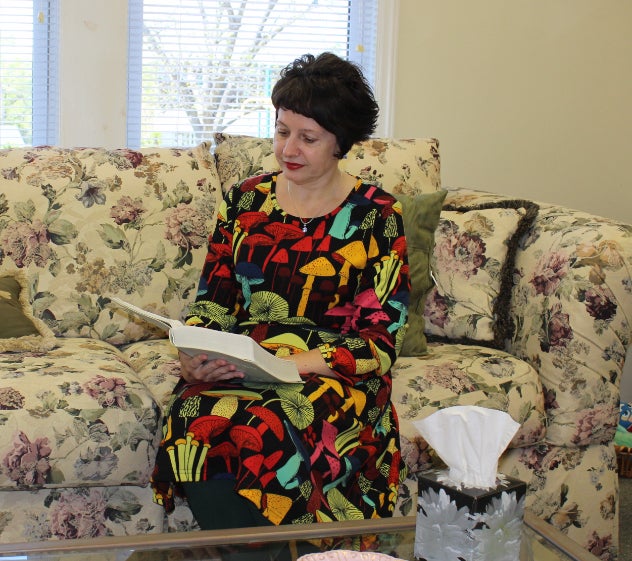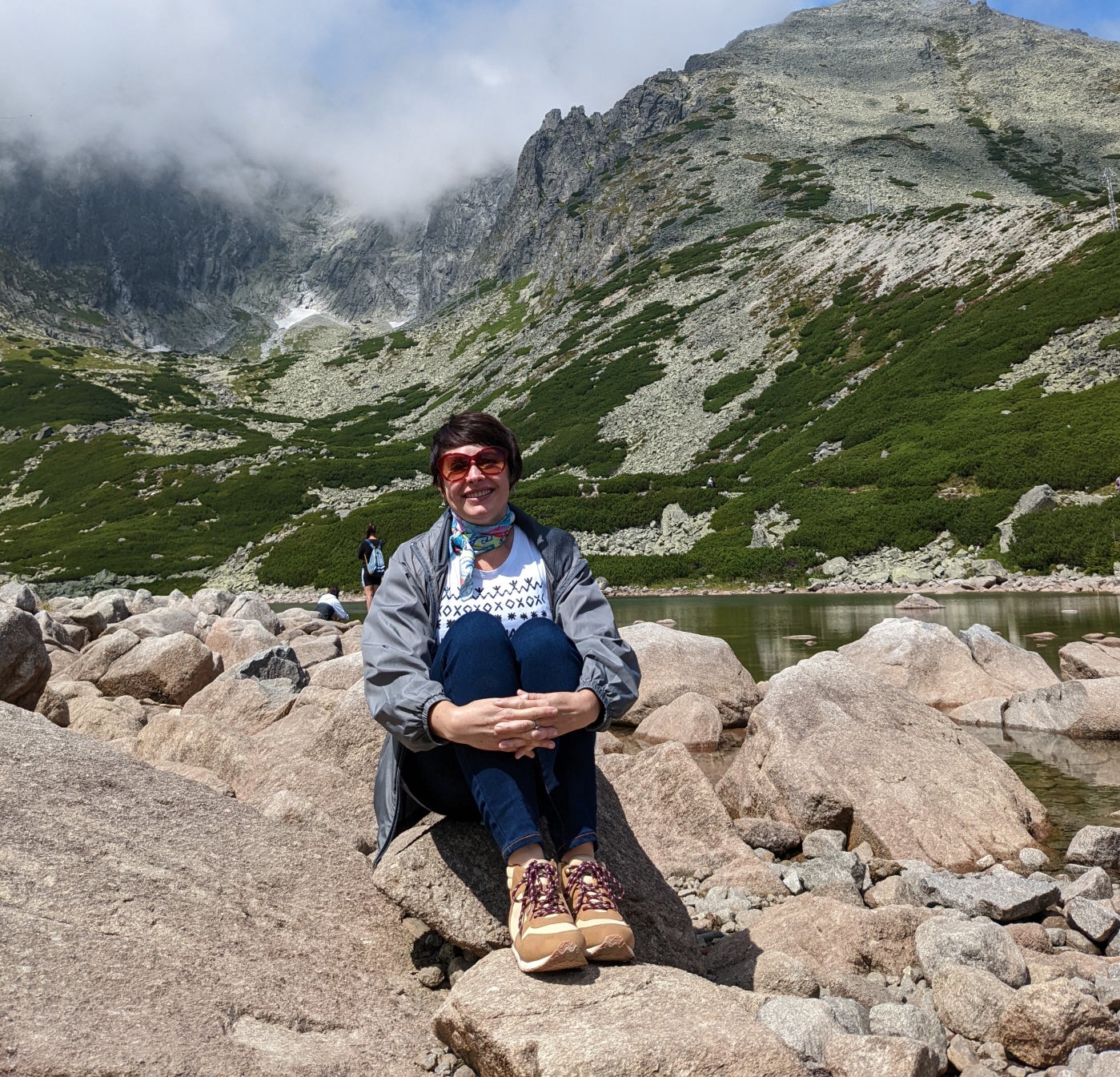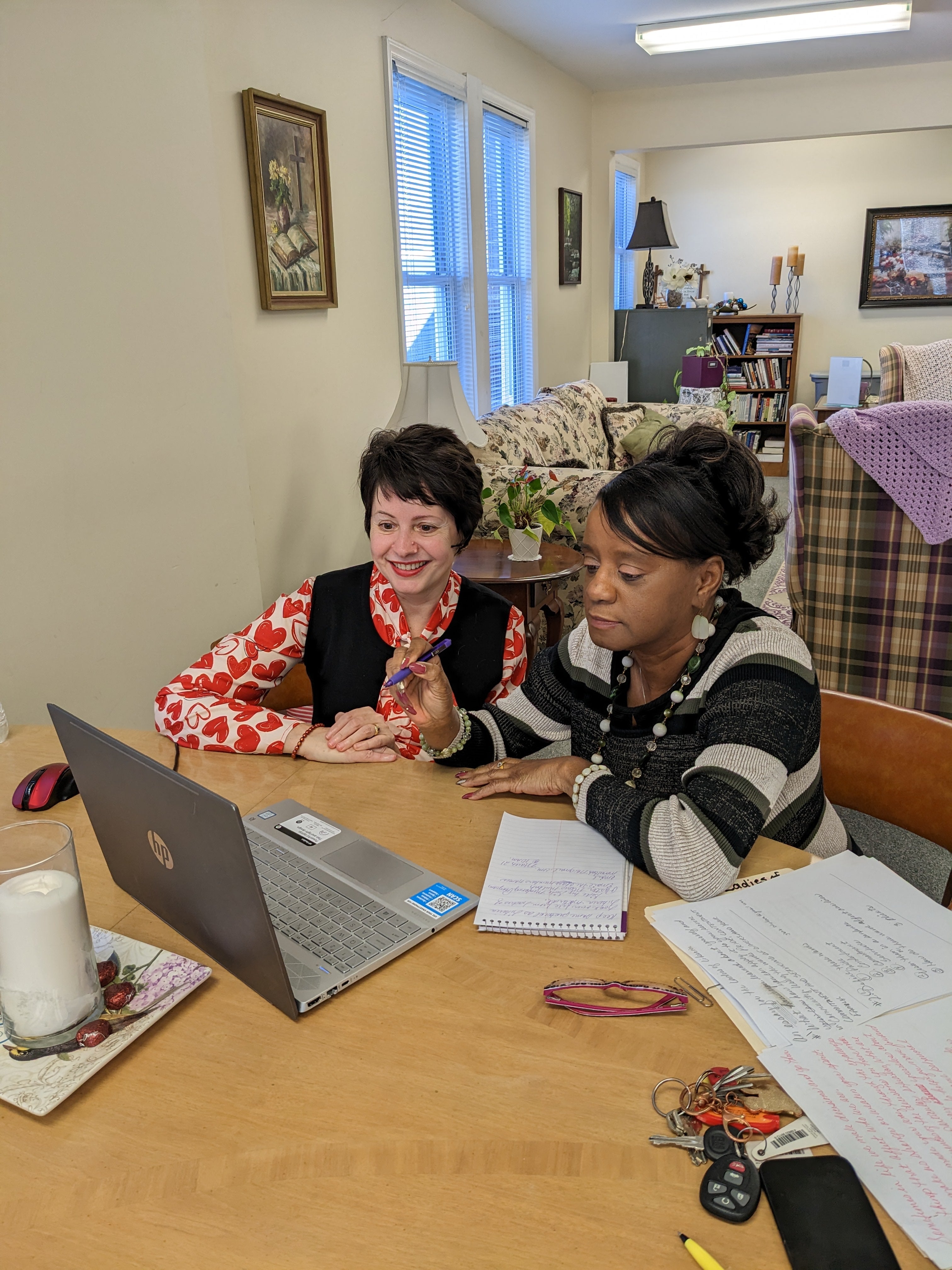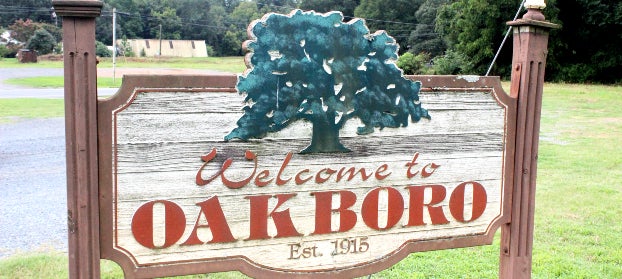STANLY MAGAZINE: Jana Strukova’s journey from Communist Czechoslovakia to Stanly County
Published 2:20 pm Sunday, June 4, 2023

- Jana Strukova has operated the Mary and Martha Center since 2016.
|
Getting your Trinity Audio player ready...
|
Throughout her time growing up in Czechoslovakia (now Slovakia, a Central European country of about 5.5 million), Jana Strukova always possessed a strong desire to travel.
“My parents would say that I had an adventurous streak in me,” she said. “I wasn’t happy settling down. I wanted to see the world.”
After backpacking through most of Europe over summer break in college, Strukova took her wanderlust to the next level when she embarked for the United States in the late 1990s. She ended up in Stanly County in the mid-2000s and, following a personal tragedy, Strukova opened the Mary and Martha Center for Women, an Albemarle-based advocacy and counseling center.
A deeply religious person who has several theology degrees, Strukova feels Albemarle is where she is supposed to be — providing a refuge and safe space for women in Stanly County and the surrounding area.
“I do believe in God’s plan and I think there is a guiding hand and I strongly believe in the concept of vocational calling,” she said. “I like to believe we orchestrate our own destinies and we are our own engineers of our own success and happiness.”

Jana Strukova busy working in her office. She has lived in Stanly County since 2007.
Growing up in Slovakia
As a young child, Strukova always had a “very curious mind,” and as a result, she often got “quickly bored” with what was happening in her life — both at school and at home.
“I always needed new impulses,” she said, noting while she was a quiet child, she always had the urge to explore and see new things. An active reader and movie-watcher, she enjoyed being introduced to exotic locales and transported to faraway places.
“There was this inner drive in me that was propelling me to go out there and explore,” she said. “Maybe it was a gift from God, I don’t know. Maybe it was a personality trait. I just felt it as long as I can remember.”
Or maybe, Strukova notes, it was because, growing up in a repressed society under Communist control, travel represented a way she could take ownership of her life.
Raised in a Lutheran family, they regularly discussed topics such as theology and philosophy, Strukova said, though the actual practice of worship was often curtailed. It was not uncommon for government spies to report religious families to the authorities.
“Religion and faith, although there were churches, it was not really publicly encouraged by the government,” she said. “It was more of an underground church.”
The Communist government limited the opportunities afforded to people who were not members, including her family.
“Your life would be restricted,” she said.
As a teenager, Strukova made trips to her church to take part in year-long confirmation classes. Her mother encouraged her to make sure the streets were empty before entering the church, so as not to attract any unwanted attention. She said the entire process was scary and unnerving for her.
She finally got to broaden her horizons and see the world during her time at a university in Slovakia, where she studied education and languages, primarily English. She spent her summers backpacking across Europe, spending large portions of her time living in London.
“It’s so easy because within a couple of hours, you can cross a different country,” she said, estimating she traveled to at least 90% of European countries during this time.

Jana Strukova in the mountains of Slovakia last year. Photo courtesy of Jana Strukova.
Finding her way to Stanly County
Strukova worked as a teacher for several years in Slovakia before she made the trip to the United States in 1996. She wanted to study theology in depth, so she enrolled at the Lutheran Theological Seminary at Philadelphia, where she was housed with other international students.
When asked by friends whether she was afraid about making such a big trip, including her first overseas flight, Strukova told them she was “so excited.”
“I was so looking forward to new experiences,” she said, noting she was “thrilled” when she arrived at Newark Liberty International Airport.
Strukova enjoyed living in the one of biggest cities in the country. She visited key spots such as the Liberty Bell and Independence Hall. She also made trips with her professors and colleagues to New York City and also visited Pittsburgh, which had a heavy Slovakian influence.
She appreciated the relationships she formed with fellow international students from across the globe.
“I got to see students from all over,” she said.
Following four years in Philadelphia, Strukova, encouraged by her professors, enrolled in Princeton Theological Seminary to pursue a P.h.D. in theology. While she received an education — she found something far more important. It was here that she met another student, her future husband Doug Hume.
With both having to take foreign language classes, Hume was first introduced to Strukova after she asked to borrow his French dictionary.
“One of the things that I really appreciated about her was that she was really smart,” he said.
Having lived in Germany for several years, Hume also appreciated Strukova had an international perspective.
The couple found their way south, first to Bristol, Virginia, and then to Albemarle in 2007, as Hume accepted a job as a professor of the New Testament at Pfeiffer University.
“I had never heard of Stanly County,” Strukova said, noting that moving to a small rural community was a major “culture shock” compared with living in the densely populated Northeast.
As opposed to other Northern transplants living in Stanly, Strukova distinctly stood out because of her accent.
“I guess people are perplexed because they have never seen anyone from Slovakia,” she said about the questions she often fielded about where she was from. Many people initially thought she was Russian.
With Hume busy at Pfeiffer, Strukova served as a theology professor with Wesley Theological Seminary, a United Methodist Church seminary in Washington, D.C., where she traveled each month to various cities.
“We had a house here, but I still kind of had one foot out,” she said.
Over time, Strukova said she grew to appreciate “the slowness and quietness” of living in Albemarle. She also enjoyed the moderate weather and easy navigation, especially compared with the complex turnpikes she experienced in New Jersey during her years at Princeton.
“I’m not saying that for everybody that life is easy here, but there is a certain ease in small towns,” she said.
Channeling grief into action
Strukova remembers spending time with her brother Dusan Struk, who had visited her shortly after she and Hume moved to Stanly County. Two days after she saw her brother off at Charlotte Douglas International Airport, he died in a car accident.
Following his death, she took time to grieve and “walk through my dark valley.”
As she was processing her brother’s passing, Strukova returned to school, where she studied counseling at Gordon-Conwell Theological Seminary in Charlotte. As part of an internship, Strukova spent a year as a mental health counselor at the Stanly County Senior Center.
In coping with her own grief, she believes the seeds were first planted for the Mary and Martha Center, which opened in 2016. The name is a tribute to her grandmother Mary and her older sister Martha, both of whom Strukova was close with as a young child. Despite overcoming many obstacles, including losing their husbands in World War II, her relatives survived “only by the grace of God,” Strukova was told.
“They were my first spiritual teachers,” Strukova said.
Since opening the center, Strukova and her small team have provided mental health services such as counseling and depression screenings to individuals, especially those uninsured or below the poverty income line.
Regina Butler, who started working at the center in 2017, recalled Strukova being “just full of good ideas on how to better serve the women here in Stanly County.”
In getting to know Strukova over the years, “we just clicked because we have the same heart,” said Butler, a mentor with the Side-by-Side mentoring program. “We want to help people and we’re all about serving people.”

Jana Strukova with Regina Butler. Photo courtesy of Jana Strukova.
As part of a video series called “Can We Tell Your Story?” Strukova interviewed close to 30 people during the COVID-19 pandemic to see how they were faring, including Peter Asciutto, Charlotte Maness, Joy Almond and Heather Kilde.
“That was a very successful encouragement series,” she said.
Hume has enjoyed seeing his wife have such a positive impact on so many people throughout the area.
“I’m quite proud of her, for being entrepreneurial, creative and finding a way to make some things happen,” he said.
By helping others work through their problems, Strukova learned to improve her own life.
“I felt that when I was helping others to process their pain and to help people walk through their dark valleys, that I was actually helping myself, in the sense of facilitating healing for myself, too,” she said. “It was kind of a mutual process that helping others helped me heal my own wounds.”
She compares the healing process to a vase that is shattered into many pieces. Over time, the fragments get put back together, but the scars are still visible. It is only by embracing the scars, and seeing them as strengths rather than weaknesses, that people can fully heal. This takes time, and a dedicated support group, she said.
“Healing takes place in the community with others, for others, by others and it is a mutual process,” she said. “We heal as members of the one body.”
She still finds time each year to travel back home to Slovakia to visit family, especially her mother. She spent several weeks in the country earlier this year.
Understanding that everyone has as a unique story to tell, Strukova strives for the Mary and Martha Center to be a place where people “are more intimately known as human beings.”
And as for her story, of a woman always looking for her next big adventure?
“I am more and more at peace that there is a certain purpose in my life that I am called to fulfill and I have just tried to obey and trust God.”





